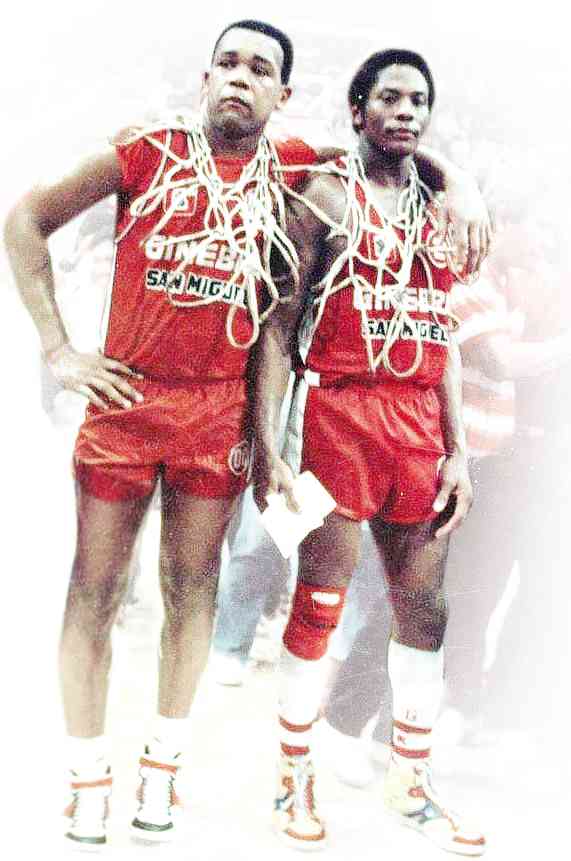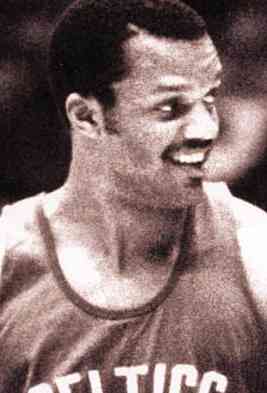With the PBA Commissioner’s Cup entering its third week and the import-replacement window still open, there’s no telling whether a super import will again reach our shores and quench the fans’ thirst for NBA-caliber play.
In 41 seasons, Asia’s pioneering pro league has seen some truly gifted ones, those whose skills show what world-class basketball is all about.
But the PBA has experienced a drought of top imported stars in recent years. More often than not, local players win games for their clubs in import-spiced conferences—a rarity in the old days, when reinforcements were signed up to not only dominate, but win championships almost single-handedly.
Several factors have brought about the dearth of the swashbuckling NBA types that fans worship like court messiahs.
Since the birth of the PBA in 1975, about 680 imports have played here. Of this number, 44 belong to the exclusive list of players who were drafted in the first round of the NBA Draft.
Back in the day, an import who scored an average of less than 30 was a candidate for dismissal and branded as a lemon. Basketball writers enjoyed waiting for news on who among the imports would get the pink slip.
After all, the imports were expected to carry the fight for their respective teams by scoring 50 points or more, hauling down at least 20 rebounds and taking over at the crunch.
When the likes of Michael Young of Manila Beer, Rob Williams of Tanduay, Wes Matthews of Ginebra San Miguel and David Thirdkill of Tanduay, among others, came over, they quickly took the league by storm.
They were all first-round NBA talents who had potentially long and lucrative careers but, for one reason or another, found themselves playing in the PBA.
Dennis Hopson, who suited up for Purefoods in 1996, was the highest-ranked first-rounder to ever play here. He was selected third overall by the New Jersey Nets, ahead of future Hall of Famers Scottie Pippen and Reggie Miller.
But luring such players rarely happens nowadays.
Andy Jao, the man responsible for bringing over Young and several other first-rounders, tells the Inquirer what he feels are some of the reasons why it’s now almost impossible for PBA teams to tap topnotch talent.
“The birth of [pro] leagues in Japan, South Korea and China obviously affected the PBA,” says Jao, who also helped bring over Glenn McDonald (U-Tex), Otto Moore (Royal Tru-Orange) and Aaron James (U-Tex). He explains that the PBA has become one of last options of top-tier imports who still entertain thoughts of returning to the NBA.
“Their seasons are basically longer than what we have here,” Jao says. “So when you sign up to play in China, for instance, it would be a tournament of around five to six months and that would mean bigger pay for them.”
Well-informed sources says the imports who now play in the PBA are paid somewhere between $15,000 and $25,000 a month, excluding bonuses.
That’s not bad, but the league still loses in the bidding war against Asia’s other leagues because a PBA conference runs for a maximum of three months.
Remember the news last year about a Chinese club’s $300,000 offer for TropangTNT playmaker Jason Castro to play as an import for a minimum of five months? That’s already huge, except that in general, Americans—especially those with NBA pedigrees—get more lucrative contracts.
“And then there are the leagues in Europe,” Jao says. “Not only do they pay a lot more than those in Asia, but the competition is tougher, and the [NBA] scouts look at those leagues for talent. “They rarely look in Asia.”
Josh Boone, signed by San Miguel Beer in 2014, was the last NBA first-rounder to play here, but he wasn’t considered a star like those who came before him.
McDonald and Carlos Clark (Alaska) were members of NBA champion Boston teams; Larry McNeil, who played for Gilbey’s Gin, hit 12-for-12 from the field in 1975 for the Kansas City Kings and continues to hold the record for the most field goals without a miss in the playoffs.
Cedric Ceballos also suited up for the Beermen after a long and fruitful career with the Phoenix Suns and after making the All-Star Game as the Los Angeles Lakers’ leading scorer in 1995 with 21.7 points a game.
“The PBA cannot go to the extent of paying more [than the existing imports’ scale] because it would be too expensive for the teams,” Jao says.



